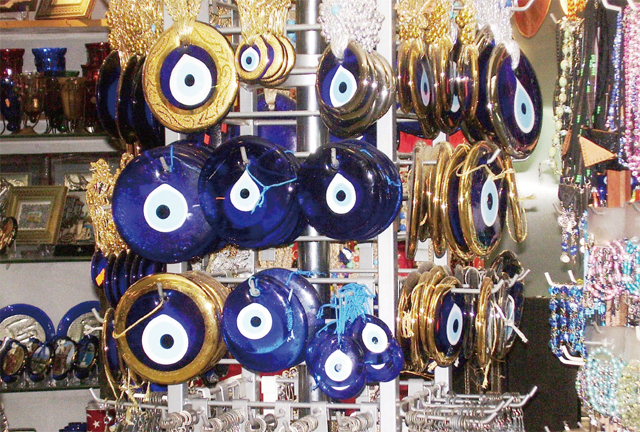
Did you know that breaking a mirror will give you seven years of bad luck, or that cutting your nails on a Sunday is just asking for trouble? And don't even think about opening that umbrella indoors; terrible things will happen if you do! Superstitions are powerful, often absurd beliefs that control the way we behave. You may dismiss superstition as something for old ladies or the overly naive, but have you ever worn a pair of lucky socks to an exam or kept a lucky coin in your pocket during a sports game in the hope that it would help you win? Maybe you're more superstitious than you thought. While superstitions themselves may be weird, the reasons why they exist are, in fact, fairly simple. Think of that time you wore those pink spotted socks to school and happened to do well in a test. It could have been just chance, but the second and third time? Surely that was more than just blind luck. Not necessarily. Human beings often make links between things that are completely unconnected. When, by chance, wearing those socks and a good test score happened together again, that link became stronger. And what about those times that you wore those ridiculous socks and nothing happened? Well, you've probably forgotten those occasions. We tend to selectively remember things that confirm what we want to be true, and forget the things that don't. In an experiment by the psychologist B. F. Skinner, pigeons were put in a cage along with a machine that regularly delivered food. The pigeons began associating the delivery of the food with whatever action they'd been doing when the food was delivered. Skinner observed pigeons turning in circles, swaying their heads from side to side, or repeatedly going to a particular corner of the cage in the hope that food would appear as a result. They had linked their action with the delivery of food, when in fact the food would come no matter what they did. Sound familiar? Humans may be the smartest of all creatures, but when it comes to superstition, we're just pigeons hoping to be fed. 你知道嗎?打破鏡子會倒楣七年,星期天剪指甲也會惹禍上身,更別想在室內撐傘——衰事肯定會發生! 所謂的迷信,是我們非常相信一些事,通常到了不理性的地步,導致我們的行為舉止也受影響。別以為迷信是老女人或超級幼稚者的專利,難道你不曾穿幸運襪去考試嗎?或者運動比賽時在口袋裡放一枚幸運幣以祈求獲勝?你可能比你想的還要迷信。迷信本身或許教人匪夷所思,但是人之所以會迷信,道理也很簡單。 有一次你穿了一雙粉紅點點襪去學校,剛好考試又考得不錯——或許只是巧合,那麼第二次、第三次呢?肯定不是純粹運氣吧。其實也未必,人類喜歡把完全不相干的事情聯想在一起。有時湊巧穿那雙襪子加上考試考得好又再度同時發生,更難讓人不去聯想。而你同樣穿那雙可笑的襪子,卻什麼也沒發生的時候,你卻可能沒注意到。我們往往選擇性地記住能支持我們想法的蛛絲馬跡,反之則忘得一乾二淨。 我們拿心理學家斯金納的這個實驗為例:斯金納先把幾隻鴿子放進籠子裡,然後在籠子旁邊放一個定時餵食機,鴿子開始把機器餵食和牠們在餵食時所做的動作連結在一起。斯金納觀察到,鴿子會轉圈圈、左右搖頭晃腦,或者反覆走到籠子某個角落,期待食物會因此出現。牠們以為這麼做就會有得吃,但是事實上,不管牠們做什麼動作,食物都會掉下來。你是不是也有似曾相識的感覺呢?人類或許是最聰明的動物,但是一說到迷信,我們跟期待被餵食的鴿子沒兩樣。 |
沒有留言:
張貼留言